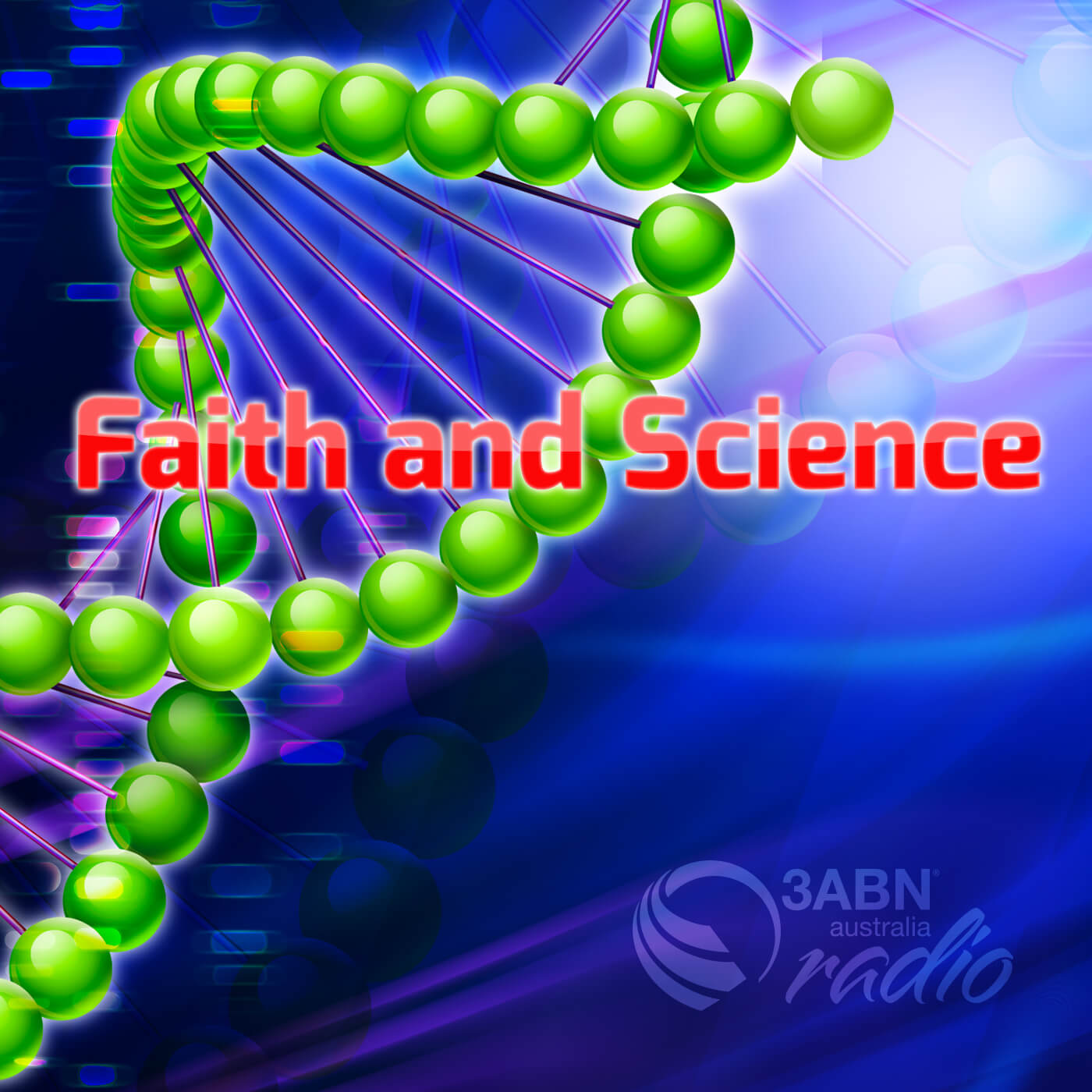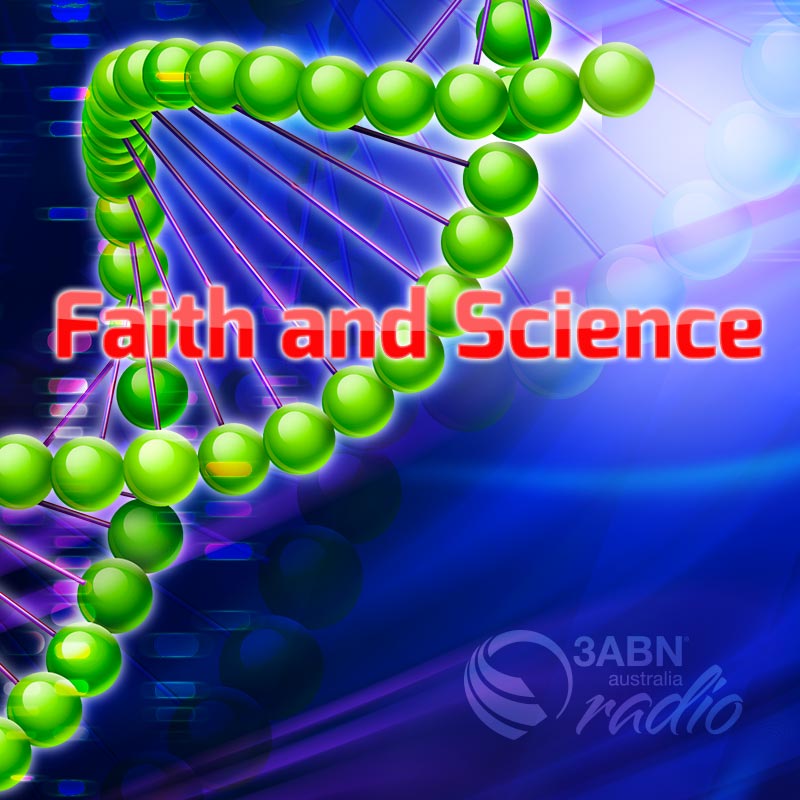Welcome to Faith and Science. I'm Doctor John Ashton. It's interesting, in April 1999 my book in six days was first published and this book was written in response to an interesting situation that occurred at Macquarie University a few years earlier.
There was a public lecture on evidence for creation as opposed to evolution held at the university. And a member of the audience, as I recall, I think, was Doctor Alex Ritchie, who at the time was curator at the Sydney Museum, stood up and said, look, I don't believe that any practising scientist with a PhD would believe in a literal six day creation. Now the chairman at the meeting that had been presenting the lecture responded and said, well I know of two scientists, at least with doctorates that believe in literal six day creation.
And he mentioned the name of a scientist, I think he worked at the Australian Atomic Energy Commission and he also mentioned my name. And later I met up with that particular person actually, we met in a bookshop actually, and he told me, he said, john, I hope you didn't mind that I mentioned your name at this particular meeting. And I said no, no, I'm happy to witness for my faith and in God and the Bible.
And as I was doing a walk some time later, I pondered on this and I thought it would be interesting to write two practising scientists who believed in a literal six day creation and that the earth and so forth was only thousands of years old, not millions of years old. So I began asking around and, you know, I talked to some people that I knew were practising scientists and believed in the literal six day creation of the biblical account. And they would say, oh yes, there's so and so at such and such university.
And so I rode around, began writing to different scientists and I got a lot of responses. In the end as I asked around for a publisher, I'd already published some books with New Holland publisher, they're a publisher based in Australia, South Africa and London and they publish a lot of books in the natural sciences area as well. And so I'd already published a successful book with them called the 7th millennium.
That was a book where I looked at the evidence that people had had premonitions of the future or had visions of events happening in the future that were actually fulfilled. And I looked at the evidence. How could this be if we know events on earth are fairly random, chaotic, how could anyone know the future? And I looked at it from the point of view.
I discussed the evidence that had been reported in history, secular history, documents, accounts, psychological research that had been carried out at universities and said the overwhelming evidence was that there was evidence of another existence or mine other than this material existence. And so that book had been published by New Holland. So they were quite interested in taking this book, which they ended up calling in six days.
Why 50 scientists choose to believe in creation. Now the number of scientists in there, we chose a number 50. We thought that was a good strong number that enabled us to fit it into a book that was less than 120,000 words so it wouldn't be too expensive produce.
And I received a lot of good articles. Some of them were very long, over 5000 words, so you can't fit a lot of those in. That would limit the number.
And some were chapters that I received that were published by authors who already had published their own books. And so I decided to leave these out. It was interesting when the book came out, it got a lot of attention at the time.
It first came out in April 1999, but within the first twelve months it was printed another two times in Australia. And it really attracted a lot of attention and eventually was translated into a number of overseas languages such as German, Italian, Spanish and Portuguese. And I think there's korean version as well.
So it was interesting that there was a really good response to it. And one of the things is that the scientists, most of them were trained at top universities. People from London, University of London.
There were people from Cambridge, one person from Harvard, several from Michigan State University, several from Penn State University, South University of Sydney in Australia, these sort of universities, and from a range of fields, geology, physics, lots in the area of biology, zoology, these sort of areas. And it was interesting, it drew the attention of one of the leading proponents of evolution, Richard Dawkins, who wrote a review, I think it was in National Enquirer on. He did a review of the book in one of the atheist type journals that are out there.
And as I recall, his main, one of the objections that he raised was that some of the contributors have been trained in church based universities. And he said, well, of course they're going to believe in creation. Well, I went back and went through, and it's interesting that only about ten, I think out of the 50 scientists had actually been educated in a christian affiliated university.
The rest were trained in, had been earned their doctorates in secular universities. And I think they go through and they point out a range of views. So the question I asked them was simply, why do you choose to believe in the literal six day biblical creation? There are no other strings attached or requirements.
I just want to know their natural response. Some people, of course have said, well, you've got people in there that have doctorates in engineering and so forth, physics. How is this related? How can these people really talk about something like evolution? Well, the thing is that we need to understand that evolution is based on chemical reactions that occur, and these chemical reactions undergo chemical laws, and these chemical laws also respond to mathematical requirements and limitations.
And it's quite easy, for example, to calculate the probability of different reactions occurring. And it's interesting that people in, say, for an engineering background, and many scientists have this capacity. Now, some of these engineers were leaders in their field in engineering.
In other words, they're very, very intelligent people, and they're able to actually read and assess the data there, just like myself. So, for example, I have a PhD in the area of epistemology, the study of theories, of knowledge, of how we can know. But the area that I looked at related to the biomedical, environmental sciences, how we can know in these particular areas, and in particular, the reactions that are involved in biochemistry and the consequential health outcomes as we change certain parameters and how can we predict these and the same in environmental.
And of course, these are all related to biological functions. And of course, my other background is in the area of chemistry, pure chemistry. And so with that background, again, I feel that I can read in these areas.
And I think one of the critical chapters that came out in the book is one by John Marcus. And I'll just have a look at it now. Now, John Marcus earned his PhD in biological chemistry from the University of Michigan.
And I would really recommend that readers who have access to the book or look at it online, I'll give you the website in a moment, read his chapter because he goes into quite a bit of detail explaining the mathematics, how it's absolutely impossible for amino acids to arrange themselves to form the viable proteins that would be essential for life to form initially. And he gives detailed analysis of this. He explains his calculations in detail in footnotes.
So they can be, you can go through and cheque them if you want to read his chapter. The book is available now free
[email protected]. dot.
So if you go into the creation.com website and you did a search on in six days preface or in six days index, there will be, on the preface, there will be a list of names. Come up down the side or on the index again, a list of names.
And these are the names of the contributors. And if you click, for example, on John Marcus, that will give you a very good explanation of the, the complexity of the biochemistry that is in life, in living systems and why it is absolutely impossible for random chemical reactions to either assemble a cell or once a cell had formed, for example, to create then the new codes and so forth, to allow for the claimed evolution to occur. So the bottom line that it is absolutely impossible for evolution to have occurred.
And this is very important to understand this, there's an early chapter in the book by Doctor Gerry Bergman, who has a couple of PhDs. One of them, as I recall, is in the area of biology as well. And he quotes Sir Fred Hoyle, the famous astronomer who similarly did a calculation and showed that the probability of enough protons, random, randomly assembling, is astronomically impossible.
It's absolutely huge. The probability of that happening we can define as absolutely impossible. And so these are, as I said, when we look at the maths of underpinning the claims of evolution, it's absolutely impossible.
So why isn't this being taught in our schools? Because there is actually, in my view, quite a strong push to actually keep the theory of evolution going, because the only alternative really is creation. And that leads us right in to the admitting that there is a divine, supernatural power. But the evidence that we have at the moment is definitely that there are no natural explanations that fit our known chemistry and laws of physics that can explain living, the origin of living systems.
The only origin that we can really use, the only explanation that we have, is that there was a supernatural creation. And the Bible describes that in a way that fits very well the data that we observe. You've been listening to faith and science, and if you want to re listen to this programme, just google 3abnaustralia.org.au.
Click on the radio button and you'll see the different programmes there. And remember to tell your friends about these programmes.
And there are many programmes there to listen to. I'm Doctor John Ashton. Have a great day.
You've been listening to a production of 3ABN Australia Radio.


